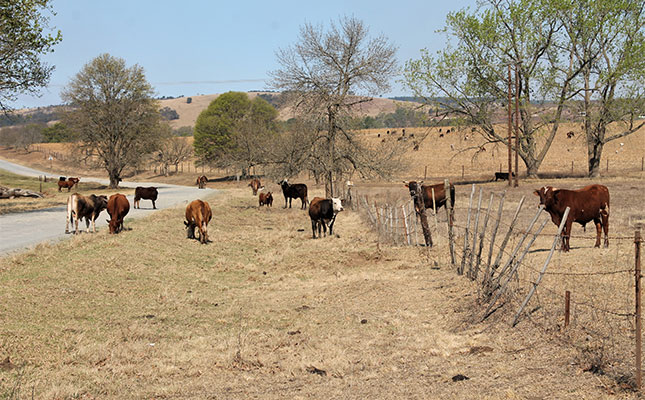
Photo: Lloyd Phillips
A recent ruling in the South African Land Claims Court (SALCC) has opened a door for landowners to successfully achieve court orders compelling farm dwellers to reduce their livestock numbers on overstocked land.
According to KwaZulu-Natal-based labour and land law attorney, Rob McCarthy, of McCarthy and Associates Attorneys, a landowner in Mpumalanga had long been trying to have a farm dweller on his property reduce his livestock numbers on the 112ha of grazing that the landowner had allocated to the farm dweller.
“The condition of the designated area for the occupier to graze his [livestock] was being jeopardised due to the occupier grazing more livestock in his designated grazing area than was sustainable. This resulted in severe overgrazing and extensive damage to the grazing in the designated area,” said McCarthy, who represented this landowner in the SALCC.
He explained that the landowner had obtained a Veld Condition Assessment Report conducted by the Mpumalanga Department of Agriculture, Rural Development, Land and Environmental Affairs.
This report was compiled in terms of the Conservation of Agricultural Resources Act 43 of 1983 (CARA). CARA obliged owners and users of agricultural land to use such land in a responsible manner, including by preventing overgrazing, to avoid its productivity being diminished.
“The learned Judge Spilg decided […] in favour of the farmer [and] granted an order for the removal of the occupier’s [livestock] in order to give effect to the directives in the [Veld Condition Assessment] Report. Judge Spilg stated during the hearing […] that we have a duty to protect agricultural land, and that courts also have a duty to protect agricultural land,” McCarthy said.
Both McCarthy and Sandy La Marque, who is CEO of Kwanalu, separately told Farmer’s Weekly that Spilg’s order was “ground-breaking” and “precedent setting”.
La Marque said that in circumstances where farm dwellers reneged on either a formal or informal “gentleman’s agreement” with a landowner regarding how many animals he/she may graze on a particular area of land, this frequently led to many land rights issues.
These issues included tensions between landowners and farm dwellers, as well as a trend of “expropriation by self” where farm dwellers began acting as if the land belonged to them.
“If we are now able to use CARA and this latest judgement as tools [in future similar court cases], it will be very helpful to landowners,” La Marque said.
McCarthy said that Spilg’s court order highlighted the importance of a landowner obtaining a Veld Condition Assessment Report if the landowner believed that his/her farm was being overgrazed by the livestock of a farm dweller.
Such a report would be “an effective way” of proving the extent of such overgrazing and of providing possible measures to rehabilitate the degraded agricultural resource.










